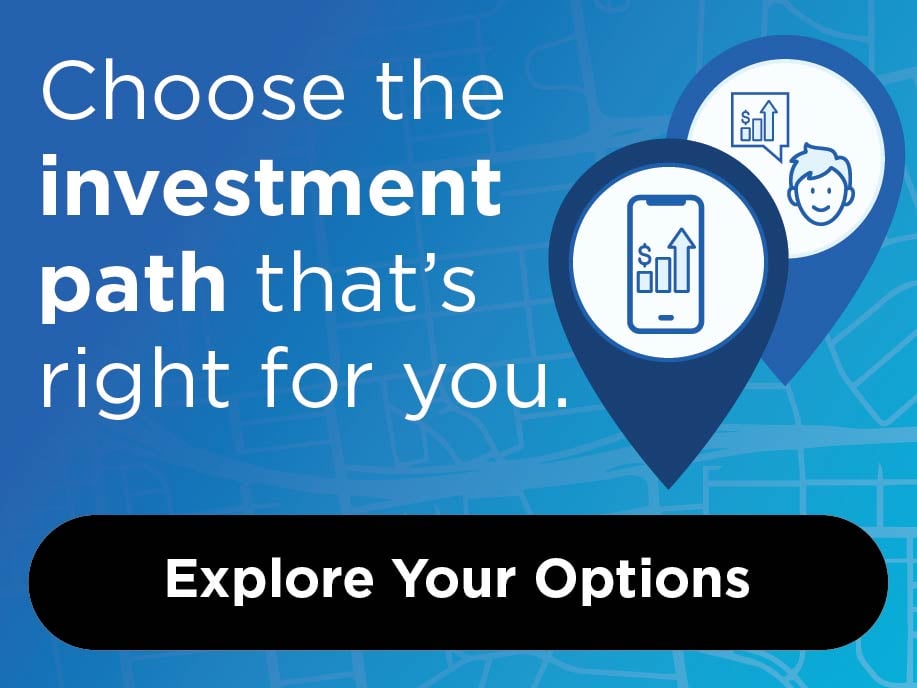
A college education is one of the largest investments you will make in your life. You have options when it comes to paying for college including savings, 529 plans, Education Savings accounts, scholarships, grants, fellowships, work-study programs, employer assistance and student loans. Many students turn to student loans to help cover the cost of tuition, fees and other expenses.
Generally, there are two types of student loans—federal student loans and private student loans. While both options can help students pay for their education, we’ll dive into the key differences between the two.
Federal Student Loans
Federal student loans are funded by the federal government. For the undergraduate, dependent student, there are two types of federal loans – student and parent. The Direct Loan is the best option for most student borrowers, as it allows the student to borrow in their own name without a cosigner and at a relatively low interest rate. The Direct PLUS for Parents Loan is available to parents of dependent students and is intended to cover college expenses not covered by the student loan.
Direct Loans for Students Offer:
- Lowest interest rates
- The student assumes the debt
- Unsubsidized and subsidized options
All students who complete a FAFSA will be considered for a Direct Unsubsidized Loan. There is no credit check, and students can borrow up to $5,500 for the first year, $6,500 for the second year, and $7,500 for subsequent years with a max of $31,000 for a bachelor’s degree. For students who demonstrate financial need, they may be considered for a Direct Subsidized Loan. In this type of loan, the U.S. Department of Education covers (i.e., subsidizes) the interest for this loan while the student will not be charged interest while they are enrolled in school or during the six-month grace period once they graduate or leave the school.
While students are allowed to defer repayment of their federal student loans, the interest will accrue on unsubsidized loans, which means it's "costing" them to use this loan. Differently, a student in school can defer their subsidized loan and not accrue interest. Students can always choose to pay the interest that accrues even when they are not required to make a payment, and doing so will likely decrease the amount of money they repay over the life of the loan.
A Direct PLUS for Parents Loan:
- Often has a higher interest rate than private student loans
- Requires the parent to be the borrower, leaving the parent responsible for all payments with no option to transfer the loan to the student
- Does not require a minimum credit score; although, the interest rate is affected by credit ranking
- Has an option to defer but are unsubsidized and begin accruing interest immediately
A Direct PLUS for Parents Loan is a federal student loan where parents of dependent, undergraduate students are eligible to borrow up to the full cost of attendance minus any financial aid their student received, including grants, scholarships, or loans. We recommend shopping around before taking out a Direct PLUS for Parents Loan, as rates and options are not necessarily the best for everyone.
To begin the process for any federal student loan option, you must first complete the Free Application for Federal Student Aid (FAFSA®) form.
Private Student Loans
Private student loans are loans made by a lender such as a bank, credit union, or other financial institution. Private student loans may be a good option for students who have exhausted their direct federal student loans and need additional funding to cover the cost of education. They’re often a better alternative to the federal Direct PLUS for Parents Loan.
Private student loans offer:
- The ability to shop around for the best interest rate
- An interest rate that is determined by your credit history
- Various repayment options
- Often the student can assume the loan at some point
When scholarships, grants, and federal aid aren’t enough, private student loans can be a necessary and cost-effective way to fill educational funding gaps. At CommunityAmerica, we want to make financing college easy so you can focus on achieving your dreams of higher education at the school of your choice.
CommunityAmerica offers a student loan that functions as a line of credit that might be the right fit for your family. We offer flexible repayment options and a co-borrower release once the student can qualify to hold their own loan.
And if you have any questions, get in touch with our free dedicated College Planner for individualized guidance for your future plans.





